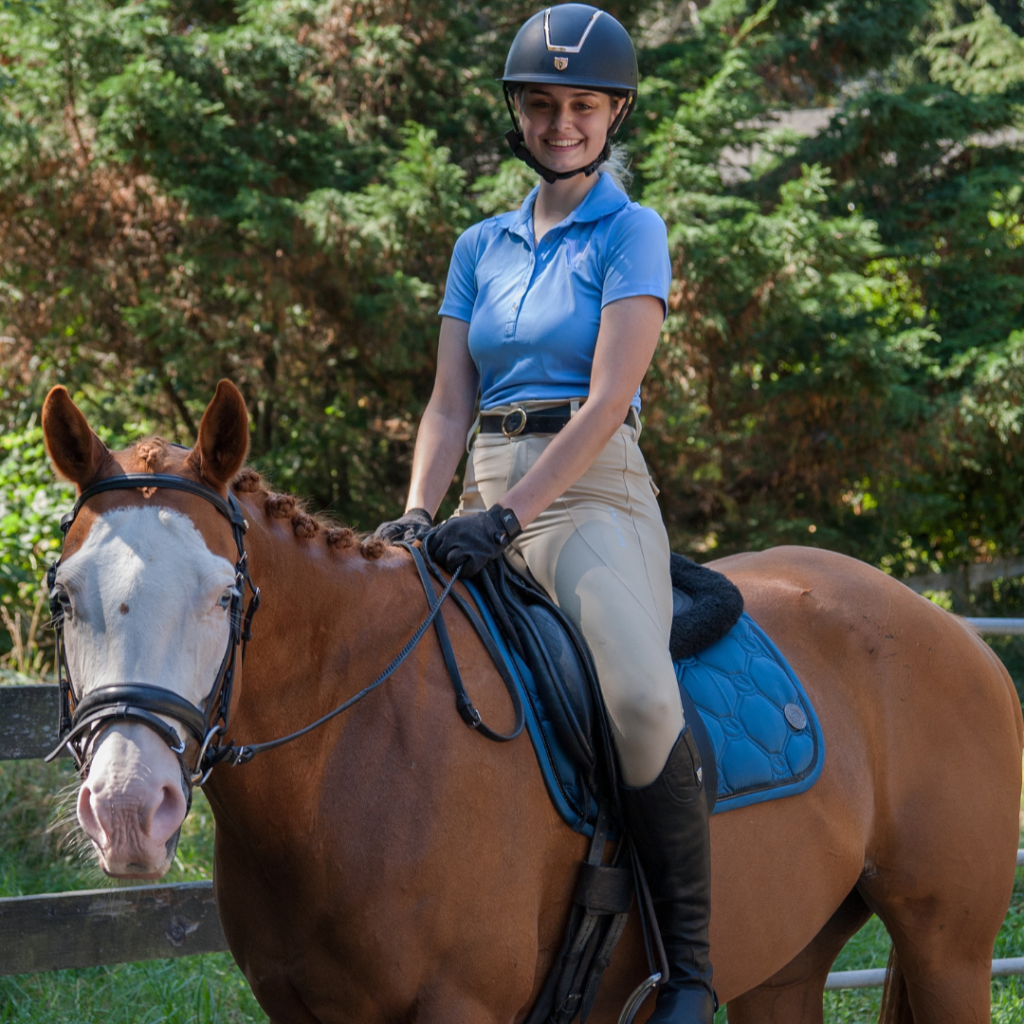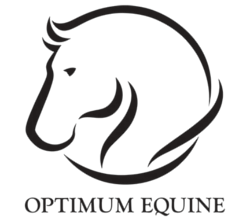
Maura is the Fall 2022 Reserve Champion Award recipient (sponsored by the Pittsburgh Polo Club).
I originally got involved with riding the way most young girls do—through horse camp. At the time, I lived in Saskatchewan, and for a few glorious weeks every summer, I went to a sleep away camp and rode every day. We moved to the interior of BC when I was thirteen in order to be closer to the Children’s Hospital in Vancouver, and then to Vancouver Island after I graduated high school. Somewhere along the way, riding got left behind.
When the pandemic hit, my physical and mental health went into a steady decline, until finally in May 2021 someone suggested therapeutic riding. It took less than five minutes for me to be completely obsessed. I knew immediately that I was meant to be back with horses. When I started, I was so weak I couldn’t trot for more than 30 seconds, and I would get home completely exhausted. Now, more than a year and a half later, I own my own horse (a sweet little quarter horse named Addie). She was the first horse I rode when I started lessons again. We really were meant to be.
I spent the summer of 2022 showing very low level jumpers, but my new goal is to compete in dressage and potentially hunters by the summer. My very, very long term goal is to one day make it as a professional para-athlete in dressage. I am also hoping to start my own barn with my mother where I can produce horses and provide lessons for other disabled athletes.
Despite dedicating every possible second to riding and my horse, I’m not as far along in my career as I’d like to be. I am doing everything in my power to improve in and out of the saddle, but due to the unpredictable nature of my health issues, I have had to take long stretches away from training, which has set me back. However, even out of the saddle, I try to absorb as much as I can. I work at a dressage barn on Saturdays, and I have been taking courses on equine anatomy and business management through the University of Guelph. I also audit as many clinics as is feasible.
The challenges I face and still work to overcome are threefold. One is my physical health. I have a very rare genetic disease called Autoimmune Polyendocrinopathy Type 1 that impacts all my major organs. It causes me to lose consciousness and go into a life-threatening state of shock when my body is stressed, and it has left me with long-term nerve and brain damage, most notably the loss of all feeling in my legs below the knee, and in my arms below the elbow. Other side effects of APS mean I cannot regulate my body temperature, heart rate, or produce important, life-sustaining hormones. My replacement hormones are severely immunosuppressive, which has posed a challenge in receiving safe training during recent waves. The medications I take also give me very brittle bones, to the point that I cracked my sternum while jumping (which is why I don’t do show jumping anymore) so I have to take extra precautions, such as wearing an airbag vest and body protector when riding. I am often exhausted and require more rest and sleep than the average person.
The second challenge is financial. I am the middle of four children, and in order to provide the medical care I need, my mother left her career to become a full-time care aid for me. I cannot work a “normal” job because of my health. It is also very important to me that my goals do not present any hardship to my younger siblings as they begin their studies at university, and therefore I pay for all my training independently. In order to pay board for my horse, my mother and I do barn chores at the facility where we board, and I lease Addie to my coach. I also sell small stuffed animals and fly bonnets to help with costs.
Finally, my third challenge is logistical, although hardly unique. I am unable to drive because of my health, so my mother has to drive me to the barn—half an hour from home, with gas prices high and one car to split between her and my siblings, who both work and study full time.
I have overcome these challenges, but not alone, and receiving this scholarship would both validate the effort so many people have put in to help me, proving that this is worth it for my future, and relieve a little of the pressure.
